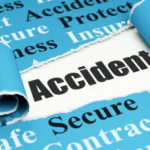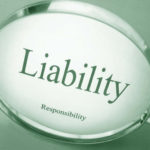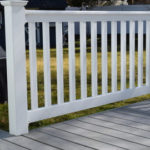Category Archives: Premises Liability

When Does a Store Owe a Customer a “Duty of Care”?
In any kind of personal injury case based on negligence, a plaintiff must first prove the defendant owed him or her a “duty of care.” In the context of a car accident, for example, a driver has a duty of care to operate their vehicle in a safe manner. And with respect to premises… Read More »

How the Passage of Time Can Affect Your Personal Injury Case
One problem in many personal injury cases is recreating the actual scene of the accident. In a premises liability case, for example, the plaintiff needs to prove that there was some dangerous or defective condition on the property that caused their injury. But several years may elapse between the date of the accident and… Read More »

Is an Employer Liable for an Employee’s Acts Outside of Work?
Employers in Tennessee are vicariously liable for the negligent acts of their employees. Of course, that does not extend to everything an employee does. The negligent act must occur within the “course and scope” of employment. Check Dispute Leads to Off-Site Confrontation, Lawsuit A common example of vicarious liability is a delivery driver who… Read More »

Store Faces Trial After Woman Slips on “Applesauce Puddle”
Slip and fall accidents frequently occur in busy stores. While retailers may not be immediately aware of every spill that occurs on their premises, they should train their employees to identify a potential hazard to customers and take appropriate action. Even if a store has such policies, but the employees fail to follow them,… Read More »

Can Holiday Decorations Create a “Dangerous Condition” Under Tennessee Law?
A personal injury claim based on premises liability generally hinges on whether or not there was a “dangerous condition” the property owner knew about and failed to correct, to the detriment of the injured plaintiff. Sometimes a dangerous condition is easily defined. But other cases require courts to make judgment calls on what a… Read More »

Is a Homeowner Responsible for a Deck Collapse?
An outside deck is a great place to relax with friends. But if a deck is poorly constructed, or the homeowner fails to keep it in a safe condition, the results can be tragic. A deck collapse may instantly injury or kill dozens of people. When that happens, the victims may pursue a personal… Read More »

How Do I Prove a Slip-and-Fall Injury?
One of the most common types of personal injury claims is the “slip-and-fall” accident. These are actually known as premises liability claims. The basic idea is that a property owner can be held liable under Tennessee law if they fail to repair a known dangerous condition on the premises. For example, if the manager… Read More »

Can the Defendant in My Personal Injury Case Have Me Followed?
A personal injury case is not simply a matter of proving the defendant’s negligence. The plaintiff must also demonstrate to the court–i.e., the jury–how the defendant’s negligence injured them. The defendant, in turn, will try to minimize or reject the extent of the plaintiff’s injuries in an attempt to avoid liability. Surveillance Video Defeats… Read More »
How Comparative Fault Affects Your Personal Injury Claim
Tennessee applies a comparative fault rule in personal injury cases. This means that if the plaintiff is “at least 50 percent” at fault for the underlying accident or injury, the defendant is not liable for any damages. Determining a plaintiff’s fault is therefore a key issue in many personal injury lawsuits. Cabin Owner May… Read More »
Can I Sue the City for Hazardous Conditions on Public Property?
When private property owners fail to correct a known dangerous or hazardous condition on their premises, they may be liable for any personal injury sustained by an innocent third party. A similar rule applies in Tennessee to property owned by state and local government agencies. While the government is normally immune from personal injury… Read More »











